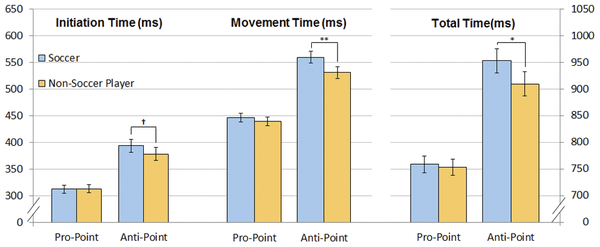America leads the world in science and Nobel prizes but we may never compete in men's soccer. The reason may be because men are too smart to hit things with their heads. A paper on the effects of young women who hit things with their heads is why.
The ongoing effects of a boxer hitting you in the head (bad) or Ronda Rousey arm-barring you into unconsciousness (kind of awesome - once, anyway) would seem obvious but a new paper says even less forceful actions, like 'heading' a soccer ball, can lead to changes in performance on certain cognitive tasks. It may be the American academia is out to kill sports. With science saying hockey and football are also bad for brains, and psychologists claiming competition hurts psyches, our future looks bleak.
The researchers tested the effects of non-injurious head-to-ball impacts on cognitive function using a tablet-based app they had created for the experiment. They found that the high school female soccer players (median age for both groups = 16.5 years) were significantly slower than the 12 female non-players on Anti-Point tasks that required pointing away from a target on the screen, but showed no difference in performance in Pro-Point tasks, when pointing to the on-screen visual target. Error trials were excluded, as were all outlier trials iteratively until all remaining trials were within 2.5 standard deviations.
According to the study, tasks that involve pointing away from a target require specific voluntary responses, whereas moving toward a target is a more reflexive response. Based on their observations, the authors conclude that sub-concussive blows to the head may cause changes specifically linked to certain cognitive functions.

Estimated mean initiation, movement, and total reaction times for soccer and non-soccer subjects. Blue bars represent data from soccer players, and orange bars represent data from non-soccer players. Error bars indicate the 95% confidence interval (d.f. = 11). Note that the scale for total time (far right) is different from that of the initiation and movement times. Significance levels: (†) for p<0.1, (*) for p≤0.01, and (**) for p<0.005. Credit:
doi:10.1371/journal.pone.0057364
The authors say that the app used in their research may be a quick and effective way to screen for and track cognitive changes in athletes. They add that a tablet-based application for such quick screens may also have broader applications in the clinic or the field.
Citation: Zhang MR, Red SD, Lin AH, Patel SS, Sereno AB (2013) Evidence of Cognitive Dysfunction after Soccer Playing with Ball Heading Using a Novel Tablet-Based Approach. PLoS ONE 8(2): e57364. doi:10.1371/journal.pone.0057364





Comments